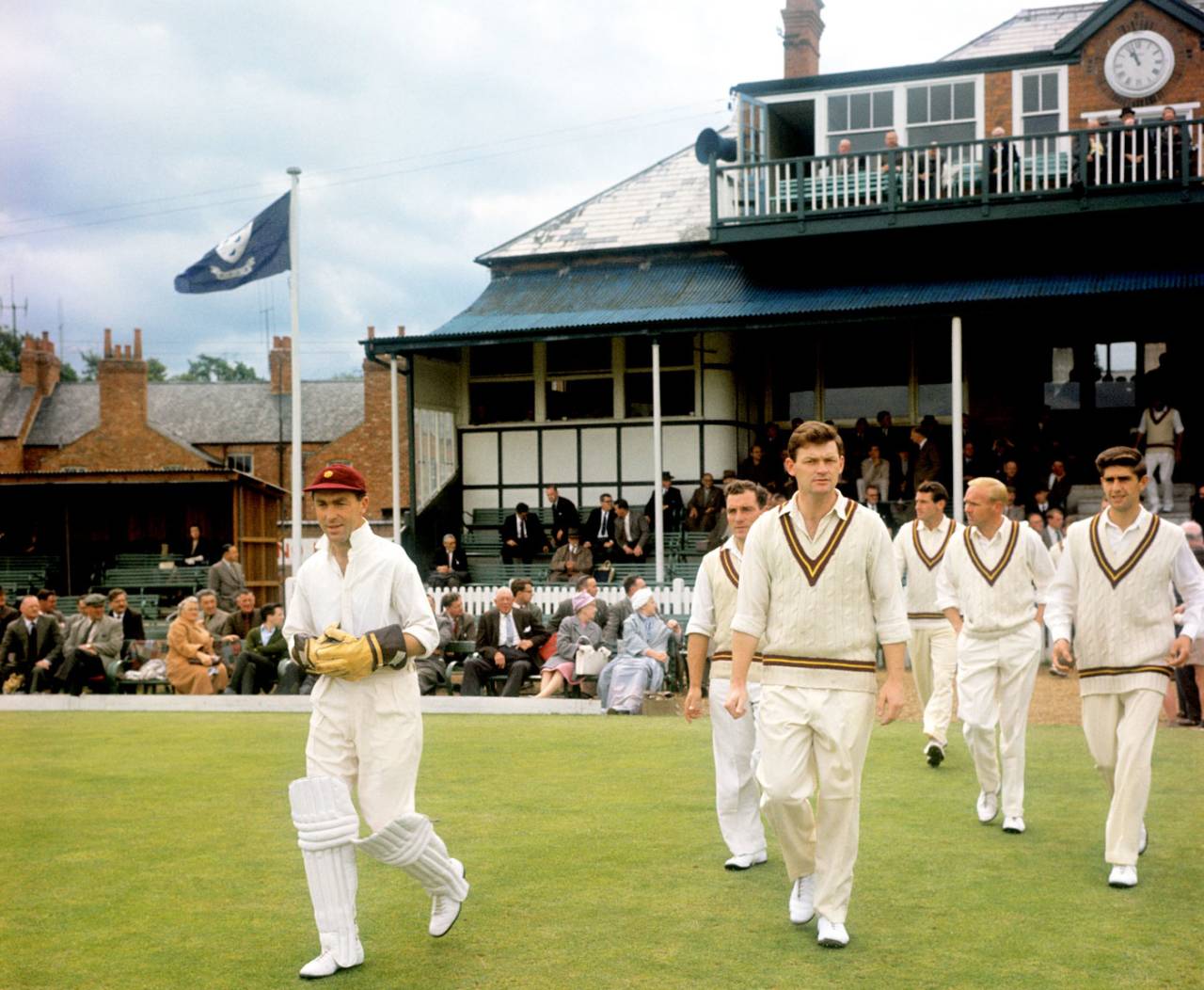The Englishmen who spoke for voiceless South Africans
Remembering two Test cricketers who worked to undermine apartheid's evil effects
Mohamed Aslam Khota
07-Feb-2016

Keith Andrew (with gloves on) helped non-white South Africans get access to coaching courses • PA Photos
My English cricketing heroes include great Test players and insightful and thoughtful observers who campaigned against apartheid in my country.
In 1979 I watched David Gower compile a graceful double-hundred against India at Edgbaston, thrilling spectators with his style, grace, poise and elegant strokeplay. Another hero was Ian Botham, who was solid in his batting, intelligent in his bowling, and breathtaking in his fielding, especially close in. His epic walks for philanthropic causes make him extra special. Graham Gooch's arrival in South Africa with the rebel English XI in 1982 was devastating to a multitude of non-white fans, though watching him bat was a sight to behold.
Michael Atherton's marathon undefeated century in Johannesburg in 1995 ranks as one of the best defensive innings I watched. His writing and commentary these days are even more engaging. Then there was Michael Vaughan, who inherited a player-friendly set-up and a very good team at the right time. He led England to a fine series win against the fancied South African team in 2004-05, and his bold leadership and skilful man-management won them the Ashes.
Off the field there was the late and much admired writer Peter Roebuck, who insisted South Africa remain isolated from international sport and particularly cricket.
Commentator John Arlott , key in finding an English club for Basil D'Oliveira to play at, refused to commentate whenever South Africa played after he saw the ubiquitous apartheid policy adopted into the statute books after his only tour to the country in 1948. Former captain Mike Brearley openly criticised the cricket establishment during the Dolly affair, and the young Peter Hain, now a Labour MP, campaigned vociferously to stop all sporting contact with South Africa. Much of the early success in the country's isolation can be attributed to him.
I was recently presented The Promise of Endless Summer, a compilation of cricket obituaries. In it are some brilliantly written tributes, but the mention of two gentlemen reminded me that their contributions on behalf of ordinary South Africans were noteworthy: the Reverend David Sheppard, Bishop of Liverpool, and Keith Andrew.

David Sheppard, a cricketer and a clergyman, called for a sporting boycott of South Africa before many other influential voices spoke out•Getty Images
Both men played for England, and the Bishop even captained his country. They passed away in 2005 and 2010 respectively.
Sheppard's was an unequivocal stand against apartheid and sporting contact with South Africa. It didn't come as a surprise that a man of the cloth castigated the abhorrent policy and was among the first men of influence in the sporting world to call for a boycott.
In 1980, Pirates Cricket Club, which played under the non-racial Transvaal Cricket Board, informed Sheppard, in writing, that he was the club's first honorary vice-president for life. He was certainly moved and accepted the post, and was pleased to know after so many years that his protest had not gone unnoticed in this country.
Andrew, on the other hand, I came into personal contact with. In late 1981, I learnt through Kent professional Graham Johnson that coaching courses were being run in the UK under the National Cricket Association (NCA) and that Andrew was its director. The NCA only admitted international cricketers, professionals playing county cricket and players earmarked for places in county teams.
There were no coaching courses available for non-whites in South Africa, so I telephoned Andrew and told him that there were cricketers here in desperate need of professional coaching. He explained the association's position but immediately realised that ours was a special case, and he stuck his neck out for us during a meeting with his fellow administrators, the result of which was that Ahmed Dinath and I were the first certified non-white coaches in South Africa. On our return to South Africa, we immediately went to schools and clubs, and also held classes for fellow players and teachers.
Four years later we took the exercise a step further by sending cricketers to play club cricket in England and Scotland. Andrew accepted another five players to attend the courses over the next few seasons. Through their playing experience and qualification as coaches, Transvaal were no longer wooden-spooners in the senior national provincial Howa Bowl competition.
Now after 21 years into democracy, from among these players, Vincent Barnes has served as the national team's bowling coach and is presently honing youngsters at the High Performance Centre. Ebrahim "Barney" Mohamed has coached extensively in South Africa and elsewhere on the continent. Hussein Manack is a national selector; Mohamed Iqbal Khan serves as one of Cricket South Africa's non-executive directors; and Abdul Manack conducts motivational classes for cricketers and the corporate world, and coaches in his spare time.
These gentlemen all played under former ICC CEO Haroon Lorgat for Transvaal and along with fellow players ensured the province held their own on the field.
Sheppard and Andrew's respective contributions compelled me to share the story of their roles beyond the boundary and how they positively affected the lives of non-white cricketers during the height of the apartheid era in South Africa. Let their families and associates know that their compassion and commitment at a vital time is noted here for the record. True unsung heroes.
Mohamed Aslam Khota is a cricket commentator and analyst